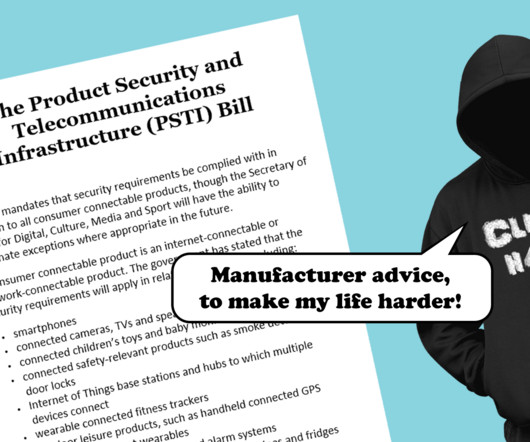Data Privacy Day: Securing your data with a password manager
IT Security Guru
JANUARY 27, 2023
Despite the fact that data is growing in value and being used more frequently by organisations, there still isn’t enough awareness around the many risks that come with the collecting and handling of it. So, how can consumers protect themselves? Recognisable keystroke patterns or short passwords should also be avoided.



















Let's personalize your content